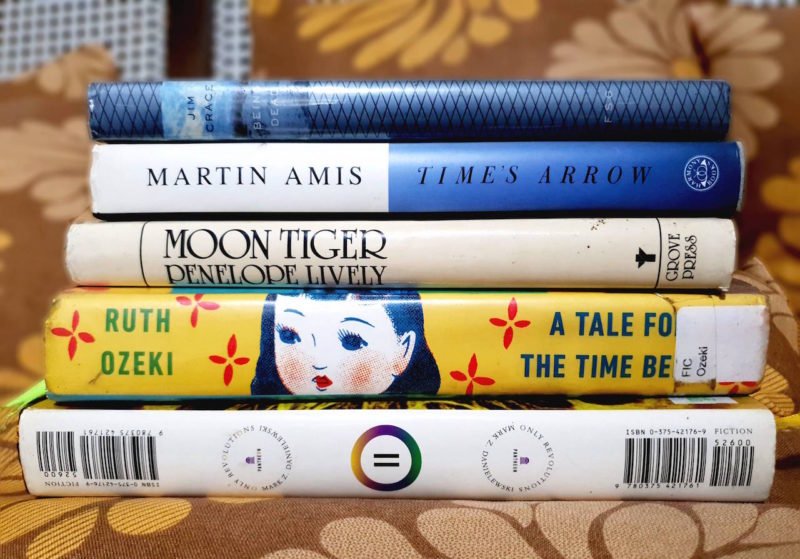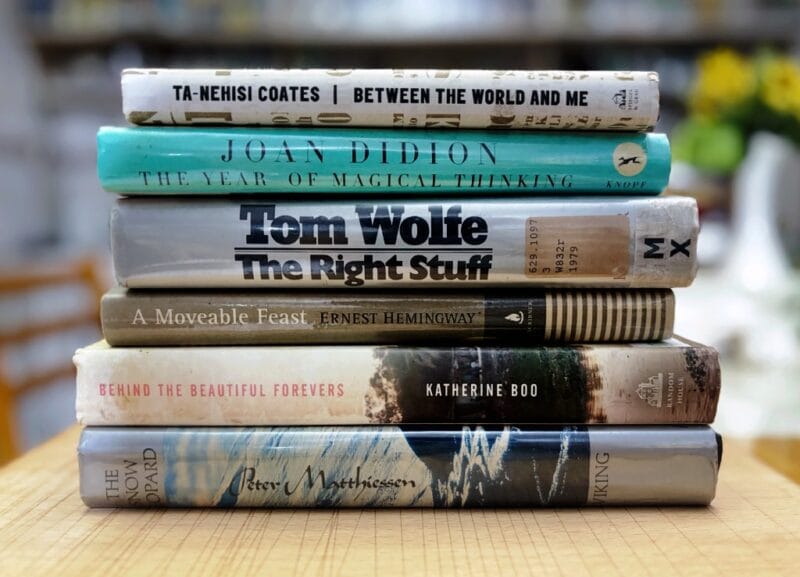The Fall (La Chute, 1956)
The Fall is an existentialist novel by Albert Camus published in France in 1956 and it is his last complete work of fiction. The book tells the story of a man named Jean-Baptiste Clamence, who is a judge living in Paris. The book is written as a series of monologues about the relationship between guilt, innocence, and moral responsibility. Clamence tells the reader of his moral descent from a respected judicial officer to an alcoholic expatriate. He tells of his encounter with a woman who fell off a bridge in Paris, with himself witnessing what was about to happen, but didn’t do anything about it.
Throughout the book, we see him struggle with his guilt and presumed responsibility. Clamence is afflicted with guilt because of his failure to save the woman from the fall, eventually ruining his life and desperately wishing for a second chance. The character also struggles with the idea of living up to society’s expectations of what is right and wrong. At the end of the novel, he utters the word “Fortunately!” which can be taken to mean that, if given a second chance to save the woman, he will still fail to act, that is why he’s thankful that the second chance (of having the same woman on the bridge) won’t be happening again.
Exile and the Kingdom (L’exil et le royaume, 1957)
Exile and the Kingdom is a collection of short stories publishedposthumously as L’exil et le royaume in France in 1957. The title of the book comes from an essay by Camus, “Reflections on Exile”, which is included as an appendix. In the essay, Camus discusses the position of the exile in relation to his homeland. In the book, Camus writes about a diverse range of characters living in different places and situations, exploring topics such as exile, poverty, happiness, and authenticity.
The book is a compilation of Camus’s earlier work and is focused on the themes of each individual story. The stories all take place in Algeria and each story explores the idea of moral exile. Camus wrote the short stories for a French-language newspaper in Algiers, and were originally published in 1951, before being collected in book form by Camus’s friend, editor, and fellow author Jean Grenier who edited the content and assembled the final order of the stories. Camus died in a car accident before the book’s completion.
The Stranger (L’Étranger, 1942)
L’Étranger is a 1942 novel by Albert Camus published in French and translated as The Outsider to British readers and The Stranger to American readers in 1946. Its protagonist, Meursault,is an indifferent yet observant member of society who feels detached from the world around him. He is raised in poverty but becomes a respected member of the community and lives what he believes to be a good life. However, he is also completely disconnected from the world around him, living without care for anyone but himself.
The novel recounts the story of Meursault’s visit to his mother’s funeral on the day of her death and his act of impiety by not showing any indication of grief or sorrow, which is commonly expected of people in such situation. After her mother’s burial, he finds himself in a relationship with a woman named Marie. The stranger referred to in the novel isMeursault himself, estrange from society because of his indifference and detachment from the world around him.
His life takes a turn when he kills an Arab on the beach.
Youthful Writings (1976)
Albert Camus’ Youthful Writings is an anthology of the author’s early works, all of which were written when he was in his late teens. The book is a collection of essays, stories, and poems written during Camus’ youth and covers his thoughts on various topics, including art, literature, politics, and philosophy. As far as the plot goes, the book is a collection of personal stories and thoughts by Camus. The narrative arch of this book may not be what you’re used to, but that’s because it is a collection of personal stories and thoughts by Camus.
The book starts off with an introductory essay entitled “The First Camus” by the French critic Paul Viallaneix, in which the youthful writings are put in perspective in relation to the development of his own literary style which emerged as a fully developed philosophy in his subsequent works.The main theme of the book is that the great beauty in life is not in the places we visit, but rather in the journey itself. The book is the second Cahiers book published posthumously in 1976 following “A Happy Death,” published in 1972.
American Journals (Journaux de voyage, 1978)
American Journals is a series of autobiographical essays written by Albert Camus, published in original French in 1978 and translated into English in 1987. In these essays, Camus details his trips across the Atlantic, first to the United States in 1946 and to South America in 1949. The overarching theme of these essays is the dichotomy between the American Dream and the reality. Camus details the disparity between the American Dream and reality through his encounters with the people he met in America.
Albert Camus earned his fame and legacy as a novelist and philosopher. This book, alongside his other nonfiction work, serves as a testament to his diverse interests and commitments. The work provides insight into his life and thinking wherein he explores the connection between self-knowledge and social justice as he reveals the challenges he faced as a journalist, as a traveler, as an intellectual, and as a writer.
Further Reading
A Life Worth Living: Albert Camus on Our Search for Meaning and Why Happiness Is Our Moral Obligation by Maria Popova, Brain Pickings
Camus and Absurdity by Laura Maguire, Philosophy Talk
What’s so special about Albert Camus? by Talking Humanities
The Myth Of Sisyphus And Other Essays by Albert Camus translated from the French by Justin O’Brien, Postarchive




